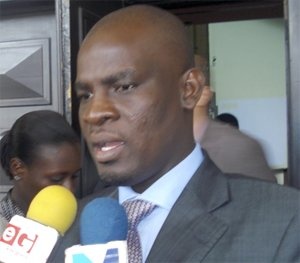While local participation in every economic sector is a “moral and political imperative,” foreign partners should not misconstrue the local content agenda as an attempt at nationalisation, Haruna Iddrisu, Minister for Trade and Industry has said.
Speaking at the opening of the fourth edition of the Local Content Conference and Exhibition of the Association of Ghana Industries, the minister said the country’s constitution and other laws do give assurances that the law of expropriation is not applicable in Ghana.
“So let me assure the business community that Ghana has no intention, whatsoever, to dilute Foreign Direct Investment or participation in our national economy. What we are seeking is to build a solid and strong partnership between those foreign companies wanting to do business in Ghana and their local counterparts, in order that we derive the benefits and they also take advantage of local expertise and skill in the delivery of their business services,” the minister said.
The local content mantra gained currency with the emergence of the oil and gas industry, with government, through a local content policy, seeking majority participation for locals in all aspects of the oil and gas value-chain by 2020.
Today, however, the idea has moved beyond the oil and gas industry; indeed, some have wondered why for over a century, local content was never so emphasised in the mining sector.
The largely foreign-dominated industry has, thus, come up with its own elaborate requirements for mining firms to increase their use of Ghanaian personnel and goods and services.
The Minerals Commission says it has already approved the localisation plans for five mines involving three companies – Newmont, Golden Star Resources and Goldfields – which commit the companies to increase the use of Ghanaian personnel over time.
The Minerals and Mining General Regulation 2012, LI 2173 which came into force on June 15, 2012, enjoins mining firms to submit localisation plans to the commission detailing how they intend increasing their use of Ghanaian personnel.
In terms of goods and services, the companies are required to submit a five-year procurement plan to the commission and in preparing the plan; the companies need take into consideration a local procurement list which the commission, from time to time, makes available. On the list are items which are deemed available locally in the right quality and quantity.
Companies that go ahead to import goods available locally pay full duty and in some cases penalties apply as well.
The AGI has, this year, expanded the scope of the conference from the oil and gas, energy and mining sectors to include the housing sector.
That sector is equally emphasising the use of locally available raw materials in building and construction. Indeed, government’s housing sector policy is to scale up the use of local raw materials from 30% to 60% by 2015. The sector minister, Collins Dauda, said at the opening of the AGI conference that government is prepared to give tax incentives to contractors who increase their use of local building materials.
The issue of capacity has often come up when the participation of locals in certain aspects of the economy is discussed, and the AGI president, Nana Owusu Afari, admits that local business people must measure up to global standards.
“I am afraid we will become irrelevant to the local content process and the global economy if we fail to work on our capacity now,” he said.
Business News of Wednesday, 23 October 2013
Source: B&FT
Local content not nationalisation - Trade Minister
Entertainment












